
After a whirlwind tour through the festival circuit, with stops at Sundance and Outfest, Dare finally arrives in theaters this weekend. And you should see it. Not only because there’s a hot man-on-man pool scene between Friday Nigh Light‘s Zach Gilford and newcomer Ashley Springer. And not just because Duncan Sheik scored the thing. And certainly not just because there’s a string of high-profile stars in the supporting cast (Alan Cumming, Sandra Bernhard, and Ana Gasteyer). But because Dare represents the now in coming of age flicks, where teens actually get to explore their sexuality while having their hearts broken. (And trust us, between Gilford, Springer and Emmy Rossum, there’s plenty of exploration.)
And it all happens under the watchful eye of director Adam Salky (who excels here in capturing no fewer than 500 of the most titillating facial expressions) and carefully crafted dialogue of screenwriter David Brind, who took what could have easily ended up some terribly amateur project and just created The Breakfast Club for this generation. Well, at least we think so. But we asked Brind to tell us where Dare is coming from.
The basic plot, without spoiling anything for you: Best friends Ben (Springer) and Alexa (Rossum) are your typical geeky gay guy-straight girl high school pairing, until bad-boy Johnny enters their lives. But Johnny has his own need for love, and isn’t afraid to spread things around.

QUEERTY: How do you see Dare in the arena of queer cinema? Ten years ago, this would be referred, in the absolute, to as a gay movie. Today, it’s just a movie about teens that happen to be exploring their sexuality. Does it fit somewhere between The Breakfast Club and The Broken Hearts Club?
How about we take this to the next level?
Our newsletter is like a refreshing cocktail (or mocktail) of LGBTQ+ entertainment and pop culture, served up with a side of eye-candy.
Brind: That’s funny. I can’t say I ever would reference The Broken Hearts Club in regard to Dare. Maybe Show Me Love or Edge of Seventeen on the specifically gay teen movie front? But yes I think you hit it on the head. It is about teens exploring their sexuality. I don’t think sexuality — and specifically homosexuality or bisexuality –is as much of a hot-button issue for young people today. There is more room for fluidity and less of a stigma. Clearly we have a long way to go in terms of acceptance and equality–but I see a glimmer of hope in today’s generation of teens and college kids. It was really important for me to depict a gay character, Ben played by Ashley Springer, in tandem with two other characters of different sexual identity. The gay teen’s journey will always be unique, but the emotions behind it–shame, desire, loneliness–are universal in the adolescent experience. I don’t believe in separate but equal, even in storytelling. I think change is made by uniting the stories of characters–gay, straight, questioning–so that they walk together and share, in many ways, a common experience.

You’ve said that the movie is based, at least in part, on your own experiences. Including the pool scene. Care to elaborate?
Haha. I don’t usually kiss and tell, but just for you, I’m throwing a bone: I did have one champagne-fueled (Korbel Brut from my parents’ mini-fridge) night when I was 17 with the “Johnny” in my life. There were no blowjobs or swimming pools. But there was one perfect kiss that turned into an incredible extended make-out session. And that’s all you’re getting.
You tell the story chronologically, but move from one act to the next by showcasing the distinct perspectives of each character. It can leave the audience guessing about what’s going through the heads of the other two characters as we zone in on the highlighted one, particularly in the bedroom scene at the end. How willing were you to let viewers simply infer what the other characters were feeling during those scenes?
I rather like challenging an audience to fill in some of the details of a character. I had no intention of being vague, but I wanted to stay true to my concept–in each act we focus on the world through that character’s eyes alone. There is certainly room for interpretation. Every audience member brings their own point of reference as well, it’s funny how people approach me after a screening with very strong–and varying–opinions on each character. Some people love Alexa and root for her throughout. Others hate Alexa and Ben by the end. Film audiences are more sophisticated than they are given credit for–they don’t need everything shoved down their throats. Subtlety is vital, as is specificity in the writer’s vision. When the two meet, the viewer gets the best experience.

Alan Cumming. Sandra Bernhard. Ana Gasteyer. You’ve got quite an all-star supporting cast. How did you snag them for the roles?
They are pretty fucking amazing. First off, Sandra is a close friend of mine. We’ve worked together on a few projects. She inspires me, on an almost daily basis. Talk about specificity of vision…I can’t think of an artist defined by that statement more than her. She also has chops as a great dramatic actress. See The King of Comedy if you haven’t. I wrote the role of Dr. Mohr, Johnny’s therapist, for her only and she graciously agreed to play it. Sandra is understated, emotionally centered and humanistic in this role. She should be doing a lot more dramatic roles.
Alan’s character of Grant Matson was originally written for a woman. I had Parker Posey in mind when I wrote it. But I had directed Alan in the reading of a play and we hit it off. We stayed in touch and talked a lot about DARE–he read the screenplay and really responded to it. One day Kerry Barden, our casting director, and Jason Orans, our producer separately brought up the idea of having Alan play the role. I loved the idea–he plays a semi-famous actor and alum of Emmy Rossum’s character’s prep school who essentially challenges her notion of herself and pushes her to do something she’s afraid of. There is a great tradition of men in the theater world teaching women how to be women on the stage–Michael Bennett, Bob Fosse, Tennessee Williams–and that intrigued me. Alan pushes this role to the max.
Ana Gasteyer came in and auditioned! And we fell in love with her. She was warm, funny without being shticky, and totally believable as a Jewish mother who also happens to be a psychotherapist.

Is this a love story? A coming of age story? A “get your rocks off” story?
All three.
Do viewer reactions to the film — whether a person loved or hated it, thought it went too far or not far enough — change depending on whether the person is gay or straight? There’s a fair amount of hetero and homo kissing and groping, often at the same time. Have you noticed gay or straight viewers differ on whether the physical depiction of teen sex is hot? Or gross?
Young people never differentiate between the gay and straight sexual scenes, regardless of their personal sexuality. That indifference is exciting and inspiring to me. There is definitely a universal awkwardness that an audience feels–they tend to say the film is extremely evocative of their own first sexual experiences. I have had some gay journalists complain that the gay sex didn’t go far enough. But I didn’t censor myself in any way–I don’t think showing a penis or a bare ass is what makes a movie sexy. It’s the tension, the chemistry, the imagery. And besides, I had nothing to do with how it was shot or directed–I just wrote it.
Acting is acting, but in real life, Zach, Emmy, and Ashley are all the sexuality they play on screen (that is: straight, straight, and gay). Intentional, or did it just happen that way in casting?
Actually no–Ashley is not gay! But it just happened in casting. I could care less about an actor’s sexuality–it’s only about their ability to play a role believably. We saw actors of all sexual persuasions I’m sure–but we didn’t ask them at the door. There were however, definitely a few concerned agents who were nervous about their clients, particularly their closeted gay clients, being in this film. The irony is that most of those agents were gay themselves.
[Ed: We totally misread an interview Springer gave!]
What would you say to a young gay actor starting out in Hollywood — Is it okay to be publicly out and still build a successful career?
Hmmm, hard question. I’m not sure I’m qualified enough to know how TV networks and studios truly feel about this. But I absolutely think it is possible to be out and build a successful career. I also think it presents some difficult challenges in playing the industry game. At the end of the day, I would never push someone out of the closet on principle. But I do think there’s a way to be classy about keeping your sexuality and sex life to yourself–not denying it and certainly not going out with some lame starlet as a “beard. There are a few gay artists who are mysterious about their sexuality and choose not to define who they sleep with publicly. It’s a personal choice. But staying closeted, in any career or field, can have some dangerous and toxic side effects to one’s psyche and self-esteem. So be warned.

Because Brind was answering these questions as he was getting together with Bernhard (and snapping this photo) she spoke up too!
Was the sexual exploration of the kids in DARE similar to her own high school experience?
They were only similar in the sense of my rich fantasy world.
What drew you to DARE?
Because of my sense memories of my rich fantasy world from high school. It all made sense.


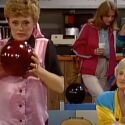






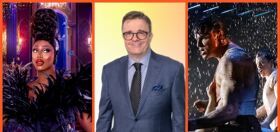
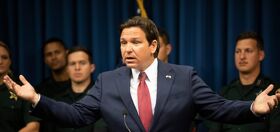



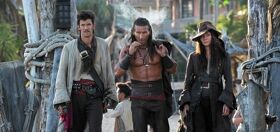
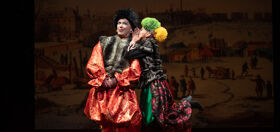
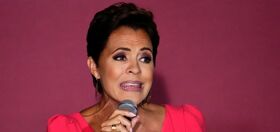
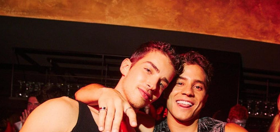
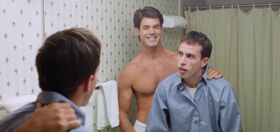
...
Be sure to check out the short film from 2005.
http://www.imdb.com/title/tt0450256/
tylertime
cumming, gasteyer and bernhard are not an all star cast. if kathi griffin is d-list these people are g-list at best.
Lady Ga-Gasp
Eek that cast makes my teeth grinding list. But the short was always a fave of mine. But this cast? EEEEEEEEEEEEEEEEEEEEEEEEEEEKKKKKKKK!!!!!!!!
kelyhope
I love how your pictures explain exactly what you are talking about. I just love your post
http://www.goarticles.com/cgi-bin/showa.cgi?C=2149951
Ralph
Projecting much? Why did the author attempt to project the lives of film characters onto the actors’ lives repeatedly?
“Was the sexual exploration of the kids in DARE similar to her own high school experience?”
By doing this, the author adds to the stereotype that if an actor plays something on the screen, she/he must be or experienced that in real life.
Fantasy does not equal reality.
ME
Ralph, I would tend to agree. I see that very same mindset as being the type that gives rise to rapid celebrity gossip and a paparazzi culture where people have to know EVERYTHING about actors as if it was their “right”.
Mr. Enemabag Jones
Saw it–thought it was crap. A bunch of straight kids pretending to be grown up. It was like one long episode of “Gossip Girl”.
And as far as casting, I have yet to know anyone involved in casting who isn’t biased towards one particular sexuality when casting a gay themed film. That’s why I left the industry years ago.
Mr. Enemabag Jones
Be sure to check out the short film from 2005.
Agreed. The short was excellent and frankly, shouldn’t have been messed with. It was like taking Annie Proulx’s heart-wrenching story and turning it into a steaming pile.
Trevez
My gut’s telling me that the film version is no longer as “intimate” or personal as the short film. And I can tell that the film is less gay than the short film was.
spindoc
I’m nervous. Haven’t seen it, but from the interview I’m getting the idea that it’s another one of those, Gay guy and his best girlfriend fall for the same guy who makes out with both of them because he just wants to be loved. I think Coling Farrell already played that role a decade ago.
ANDREWJ
Damn you gays are snarky and nasty. We should be supporting inclusive films that depict a gay character realistically.
I saw this film at Sundance–one of the best films of the year. It is not at all what you’d expect.
I have a feeling ENEMABAG didn’t see it. The kids are not all straight. And it couldn’t be farther from Gossip Girl.
And Cumming and Bernhard are queer icons–and critically respected artists. God the state of the gays online is sorry-ass.
Who are you people??
spindoc
No. 11 · ANDREWJ
I would hope we’ve reached the point where we can actually watch a movie before making a judgement on it and not just rave about it because it has a character or two that are gay or “Questioning”. As for Bernhard, would you be referring to the lady who just recently suggested that gays were mostly mincing lady boys who should stop doing people’s hair or their flower arrangements as a protest?
ANDREWJ
Umm, did you not read my post SPINDOC?
I DID see the film and loved it.
Intelligence will win the day–so please do read more carefully.
Also, look up “irony” in the dictionary. If you take every comment made by an iconoclast literally, you are going through life sadly misinformed.
Mr. Enemabag Jones
ANDREWJ
I have a feeling ENEMABAG didn’t see it. The kids are not all straight. And it couldn’t be farther from Gossip Girl.
Yes I did see this. I was referring to the actors, not the characters. And it does come off like an overly pained teen soap.
spindoc
No. 13 · ANDREWJ
———
Yes, I did read your post. You said we should be supporting it because it portrayed gay characters realistically (In your opinion,) you then went on to Trumpet Bernhard and Cumming as gay icons. You then attacked people for not liking the film, you then attacked me.
Rather than worrying about the state of gays you should worry about your bitchy reactions to freak out and attack anybody that doesn’t agree with you. Rather than being intelligent, perhaps you are just limited in your experience. The fact remains, that just because you think this movie was great there are plenty out there that might hate it and you taking off your panties and throwing them at people while crying your eyes out isn’t going to change that.
Chisne
What they did was extend a gay short and turned into a straight love story. The original was all about the two guys, but for some reason, it became about Alexa. I was very disappointed. But I guess this is how the Industry works.
WillBFair
I’m sorry, but it sounds tired. One gay character? Please. I’m waiting to see a flick with many gay and straight characters interacting normally. Until then, I prefer the best of queer film: Adam and Steve, All Over The Guy, Trick, Circuit, etc…
scott ny'er
ha. i bet there’s only white people in it too and no minorities.
scott ny'er
i had seen the short on LOGO and now just watched the short again and the trailer for this movie. Sheesh. The trailer looks completely different in look and feel from the short. The short seemed so real, so interesting, and relatable. The trailer seems boring.
schlukitz
@ No. 11, AndrewJ:
Damn you gays are snarky and nasty. Who are you guys?
The proverbial pot, calling the kettle black!
schlukitz
Sorry. The second sentence in comment No. 20 should not have be italicized. I inadvertently put the forward slash after the “i” instead of before it, at the closing of the comment.